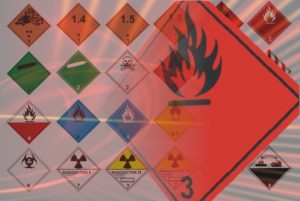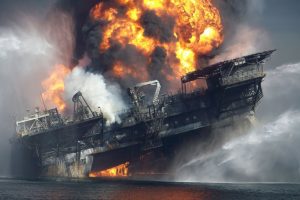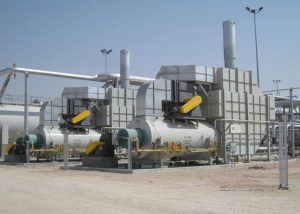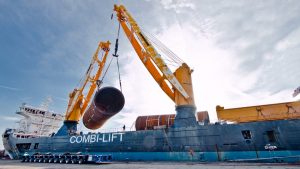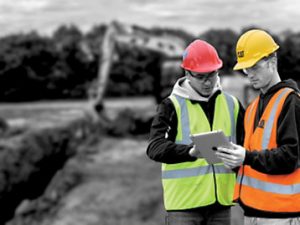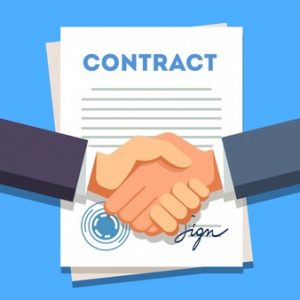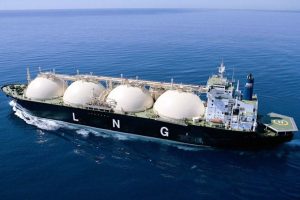Changes to the International Maritime Dangerous Goods (IMDG) Code (Amendment 38-16)
The 2016 edition to the International Maritime Dangerous Goods (IMDG) code will be in effect from January 1, 2018, and incudes the 38-16 amendments. Here is a summary of the significant changes to the 2016 Edition of the IMDG Code. 8 new United Nations (UN) numbers have been added (UN3527 to UN3534), covering polyester resin kits, polymerizing substances both solid and liquid, and engines and machinery. 6 UN numbers that are newly identified as Marine Pollutant (UN1208, UN1218, UN1791, UN2057, UN2294, UN2296) Engines, along with vehicles, were previously covered by UN3166, this UN number has been amended to…
Read More5 Fatal Oil & Gas Accidents Since 2005 (Human Error Accidents)
The oil and gas industry is known as one of the most dangerous work sectors. Both onshore and offshore drilling operations pose their own sets of risks – from unpredictable weather conditions to operations of complex equipment. Major causes of accidents include human error, mechanical failure, natural causes and deficient procedures and training when dealing with emergency situations. These accidents serve as an important reminder for companies to constantly review and improve safety protocols and equipment to be prepared in the event of dire emergency situations. Petrobras Platform P-36 Explosion 2001 — The P-36 offshore production platform was rocked…
Read MoreHow To Be A Leader in the Digital Age
As the business world is evolving, leaders today are required to step up to the plate and ensure they are ready to lead and empower their employees in this digital age. Here are three traits that digitally savvy leaders need to possess today. Passion for continuous learning Leaders with an innate desire to learn the latest technology and equip themselves with a highly capable team will succeed in the digital age. As digitisation of operations are becoming more prevalent these days, having the willingness to learn and the enthusiasm to embrace innovation keeps the business competitive. A survey revealed…
Read MoreDirect Fired Heaters: Components in the Design
What is a direct fired heater? Also known as an industrial furnace, a fired heater is a direct-fired heat exchanger that uses the hot gases of combustion to increase the temperature of a feed flowing through coils of tubes aligned throughout the heater. [1] There are various furnace designs for different functions, but all share several common features and components to its design. They include the following: Radiant section, Convection section, Shield section and Stack and Breeching sections. Radiant section The radiant tubes are located along the walls of the radiant section and receive radiant heat directly from the…
Read MoreHow to Plan and Organise Lifting Operations Safely
During lifting operations, workers are in a high risk situation and a lot goes in to ensure their safety. It is important to properly resource, plan and organise lifting operations to be carried out safely. These includes a properly trained team that is equipped with the technical know-how and knowledge to carry out operations in a safe manner. For even more complex operations, more comprehensive and detailed planning is required. Planning Various forms of planning are required for various forms of operations. The more complex the operation is, the more detailed the planning should be. For example, a simple…
Read MoreHow To Handle Difficult Media Questions
The media is known for putting spokespersons on the spot and asking difficult questions. Especially during a media crisis, having a well-crafted response is vital to a company’s reputation. With good preparation, any spokesperson will be more than adequate to handle the media. Learning how to effectively deal and answer the media correctly takes a lot of time and practice, but here are some tips and tricks on how to answer difficult questions. The Bridging Technique This tried and tested technique reframes a question on a negative topic into a positive one by “bridging” your answers to your key…
Read MoreWhat Is Instrumented Safety System?
Instrumented safety systems have in place for a long time to fit protective systems to industrial process plant. These systems are independent of the normal process control, and have implementations in place to render the plant safe in the event of a malfunction. It was until recently, that such systems have been designed with accordance to industrial best practices within the company or local level code of practice. The broad acceptance of IEC 61508/IEC 61511 standard is given safety equipment and users a common and universal framework on which to design products and systems for safety-related applications. Functional safety is…
Read MoreTips on How to Win Tenders
From understanding the bid process to evaluating the tenders available, a lot goes in when preparing and formulating a quality bid. Here are some tips on how to submit competitive bids and win more tenders. Prepare, prepare, prepare! The first step of preparation is famiIiarising with the procurement processes commonly used within the industry and tendering bodies. This way, you will gain knowledge of the different processes and what is expected, as well as understand the specific Buyer requirements beforehand. When choosing the right opportunity to bid, it is important to assess whether the opportunity is aligned with the…
Read MoreWhat is LNG and Why is it on the Rise?
Liquefied Natural Gas (LNG) has transformed the natural gas market. Since it’s development in 1964, it has presented an alternative source of fuel that is cleaner and more cost-effective. The LNG market is expected to grow at approximately 5% annually, with a global demand of about 430 million tonnes per annum in 2025. What is LNG? LNG is a clear non-toxic liquid which forms when natural gas is cooled to -160ºC (-260ºF). This temperature drop liquefies the methane present in the natural gas, making transportation at atmospheric pressure in liquid form possible. LNG, which is largely composed of methane (85%…
Read More3 Reasons Why Your Organisation Needs Business Intelligence
As more and more information is readily available, being able to effectively locate, collect and analyse data is important. When organisations are able to draw insights from these data, they are able to achieve a competitive advantage. This can be done by having the right statistical analysis tools and techniques, and Business Intelligence (BI) tools are programs designed just to do that. Here are three reasons why BI is the way forward: To gain valuable market intelligence One of the biggest advantages of having a BI platform is gaining sales intelligence and customer insights. BI helps to collect customer…
Read More
